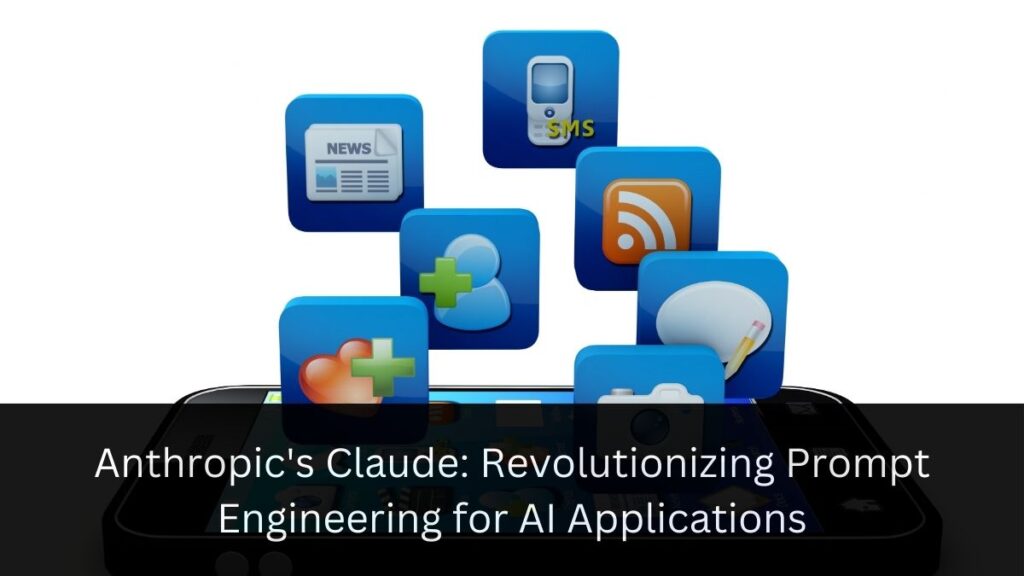The rise of artificial intelligence has transformed numerous industries, with prompt engineering emerging as a crucial component in AI development. Anthropic, a leading AI research company, has introduced several groundbreaking features designed to enhance this aspect of AI work. On Tuesday, Anthropic unveiled new tools aimed at helping developers create more effective applications using Claude, their advanced language model. These tools promise to streamline the process of prompt engineering, making it more accessible and efficient.
The Importance of Prompt Engineering
Prompt engineering gained significant attention in the AI industry last year, with the role of a prompt engineer becoming highly sought after. This discipline involves crafting inputs that elicit the desired responses from language models like Claude. Even minor adjustments to the wording of a prompt can dramatically improve the output. Traditionally, this fine-tuning required extensive trial and error or the expertise of a seasoned prompt engineer. However, Anthropic’s latest features aim to simplify this process, providing developers with quick feedback and optimization tools.
Introducing Claude 3.5 Sonnet
Anthropic’s new offerings include Claude 3.5 Sonnet, a powerful tool designed to generate, test, and evaluate prompts. This innovation leverages advanced prompt engineering techniques to create better inputs, thereby enhancing Claude’s performance on specialized tasks. By automating parts of the prompt engineering process, Claude 3.5 Sonnet allows developers to achieve optimal results with less effort and expertise.
Streamlined Workflow with Anthropic Console
The new features are integrated into the Anthropic Console, the company’s experimental platform for developers. Within the Console, a new Evaluate tab has been introduced, providing a dedicated space for testing and refining prompts. This user-friendly interface allows developers to compare different prompts and assess their effectiveness across various scenarios. Real-world examples can be uploaded to a test suite, or developers can generate a range of AI-driven test cases using Claude.
Enhancing Developer Efficiency
Anthropic’s built-in prompt generator, unveiled in May, takes a short description of a task and constructs a comprehensive prompt using the company’s proprietary techniques. This feature is particularly beneficial for new users, offering a starting point for prompt creation. For experienced prompt engineers, it saves time by automating the initial stages of prompt development.
Practical Application and Real-World Impact
In one example shared on Anthropic’s blog, a developer discovered that their application was producing overly brief responses. By tweaking a single line in their prompt, they were able to generate longer, more detailed answers across multiple test cases. This capability to make widespread improvements with minimal adjustments highlights the efficiency and practicality of Anthropic’s tools.
The Role of Prompt Engineering in AI Adoption
Dario Amodei, CEO and co-founder of Anthropic, has emphasized the critical role of prompt engineering in the widespread adoption of generative AI. During an interview at Google Cloud Next, Amodei remarked, “It sounds simple, but 30 minutes with a prompt engineer can often make an application work when it wasn’t before.” This sentiment underscores the transformative potential of effective prompt engineering and the value of Anthropic’s new tools in democratizing this expertise.
Personal Anecdote: A Developer’s Experience
As a developer working with AI, I’ve experienced firsthand the challenges and rewards of prompt engineering. When I first started using AI models, crafting the perfect prompt often felt like a daunting task. Each small change required extensive testing, and the process was time-consuming. Anthropic’s tools would have been a game-changer for me, providing immediate feedback and allowing for rapid iteration.
One memorable project involved developing an AI application for customer support. Initially, the responses were too generic, failing to address specific customer queries. After numerous adjustments, I managed to improve the outputs, but it was a labor-intensive process. With Anthropic’s new features, I could have achieved the same results in a fraction of the time, allowing me to focus on other critical aspects of the project.
Future Implications and Industry Impact
Anthropic’s advancements in prompt engineering tools are likely to have a profound impact on the AI industry. By making these tools accessible to a broader range of developers, the company is lowering the barrier to entry and fostering innovation. Startups and smaller teams, which may lack dedicated prompt engineering expertise, can now compete more effectively with established players.
Potential Challenges and Considerations
Despite the many advantages, there are potential challenges to consider. Automating prompt engineering may lead to over-reliance on pre-generated prompts, potentially stifling creativity and innovation. It’s crucial for developers to continue experimenting and exploring unique approaches, even with the availability of these powerful tools.
Balancing Automation and Human Insight
While Anthropic’s tools offer significant benefits, they are not intended to replace human prompt engineers entirely. The human touch remains essential for understanding the nuances of language and context. These tools should be viewed as aids that enhance the capabilities of developers, rather than substitutes for human expertise.
Conclusion: Embracing the Future of AI Development
Anthropic’s new features for Claude represent a major leap forward in the field of prompt engineering. By simplifying and automating key aspects of this process, the company is empowering developers to create more effective AI applications with less effort. This democratization of prompt engineering expertise is set to accelerate innovation and drive the widespread adoption of generative AI.
As we look to the future, it’s clear that tools like Claude 3.5 Sonnet and the Anthropic Console will play a pivotal role in shaping the AI landscape. Developers, both novice and experienced, can now harness the full potential of prompt engineering to build smarter, more responsive AI systems. In doing so, they will contribute to the continued evolution of AI technology, unlocking new possibilities and transforming industries worldwide.
In the ever-changing world of AI, staying ahead means embracing these advancements and integrating them into our workflows. Whether you’re a seasoned AI professional or just starting your journey, Anthropic’s innovations offer a valuable resource for enhancing your projects and achieving your goals. So dive in, experiment, and see how these tools can elevate your AI applications to new heights.

